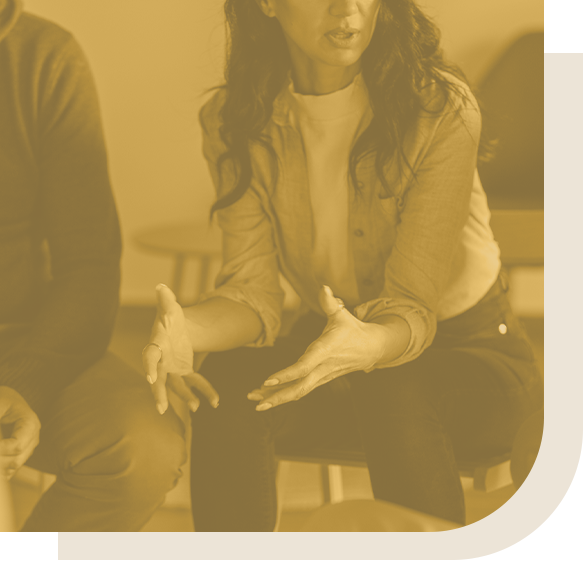Curriculum Overview: Psychodynamic Psychotherapy Program
The Ontario Psychotherapy and Counselling College (OPCC) offers a comprehensive five-year Psychodynamic Psychotherapy Program designed to equip students with the theoretical knowledge, practical skills, and ethical grounding necessary to become effective and compassionate psychotherapists.
Overview of 5-year Program
- Theories in Psychotherapy:
- Comparative Psychotherapy Theories and Frameworks (CP):
- Topics in Psychotherapy Practice Lectures and Workshops (TPP I & II)
- Concentration Study (CONY5)
- Human and Psychological Development Across the Lifespan (HD)
- Psychodynamic Psychotherapy Theory and Practice (PP)
- Comparative Psychotherapy Theories and Frameworks (CP):
- Experiential Learning Components:
- Clinical Practice and Clinical Supervision (SCP) – years 4 and 5.
- Skills and Practice Lab (LAB) – run concurrently throughout the entire five years.

Program Highlights
- Holistic Learning: Integrates cognitive, behavioral, and affective domains to provide a well-rounded education.
- Dynamic Learning Spaces: Emphasizes experiential learning through group work, residencies, and practical experience.
- Ethics and Professionalism: Strong focus on ethical practice and professional development.
- Diverse Learning Methods: Combines lectures, seminars, workshops, and clinical practice to accommodate different learning styles.
- Community and Support: A supportive network of faculty, peers, and alumni committed to your success.
By the end of the five-year Psychodynamic Psychotherapy Program, graduates will have developed a deep understanding of psychodynamic theory and practice, equipped with the skills to provide compassionate and effective therapy to a diverse range of clients.
Prospective Student Guide
Clinical Supervision Handbook
Overview of 5-year Program
Years 1-3: Foundational Studies
Introduction to Psychodynamic Theory
- Overview of key psychodynamic concepts
- The Dynamic unconscious
- Historical development of psychodynamic theory
- Major figures and their contributions (e.g., Freud, Jung, Adler)
- The therapeutic relationship
- Interpretation and use of transference and countertransference
- Working with defense mechanisms
Foundational Clinical Skills
- Self-exploration
- Establishing the therapeutic alliance
- Clinical listening and communication techniques
- Key psychodynamic interventions
Human Development
- Developmental stages and their impact on personality
- Infant development and its implications for therapy
- Adolescence and emerging adulthood from a developmental perspective
Comparative Psychotherapy
- Overview of comparative psychotherapy principles
- Historical context and development of different psychotherapeutic models
- Major theoretical frameworks (e.g., psychodynamic, cognitive-behavioral, humanistic, existential, gestalt)
- Comparative analysis of cultural approaches to psychotherapy
Research Methods in Psychotherapy
- Understanding and conducting psychotherapy research
- Evidence-based practice
- Evaluating clinical outcomes
Ethics and Professional Practice
- Ethical principles in psychotherapy
- Professional boundaries and confidentiality
- Regulatory considerations in clinical practice
- Safe and effective use of self in clinical practice
Clinical Assessment and Diagnosis
- Psychodynamic assessment techniques
- Diagnostic frameworks (DSM-5, PDM)
- Case conceptualization and treatment planning
Psychotherapy with Diverse Populations
- Cultural competence in therapy
- Addressing issues of race, gender, sexuality, and socio-economic status
- Adapting psychodynamic techniques for diverse clients
3rd Year Exam (End of Year 3)
- Competency-based exam in psychodynamic psychotherapy
- Integration of theory, practice, and personal insights
Years 4-5: Advanced Clinical Practice
Clinical Practicum I
- Extensive hands-on experience in a clinical setting
- Application of psychodynamic techniques with clients
- Regular supervision and feedback
Clinical Practicum II
- Continued clinical practice with increased responsibility
- Specialization in areas of interest (e.g., trauma, addiction, family therapy)
- Intensive supervision and peer collaboration
Comparative Analysis in Therapy
- Applying comparative psychology insights to clinical practice
- Integrative approaches to therapy
- Applying human developmental principles in psychotherapy
Advanced Techniques in Psychodynamic Therapy
- In-depth focus on specialized techniques
- Working with specific populations and complex cases
- Advanced case formulation and treatment planning
Experiential Learning Lab
- Participatory learning through group dynamics in Lab
- Self-awareness and personal growth activities
- Reflective practice
Thesis Course: Concentrated Study in Psychotherapy – Year 5
- Synthesis of learning from the entire program
- Area of specialization
- Preparation for transition to professional practice